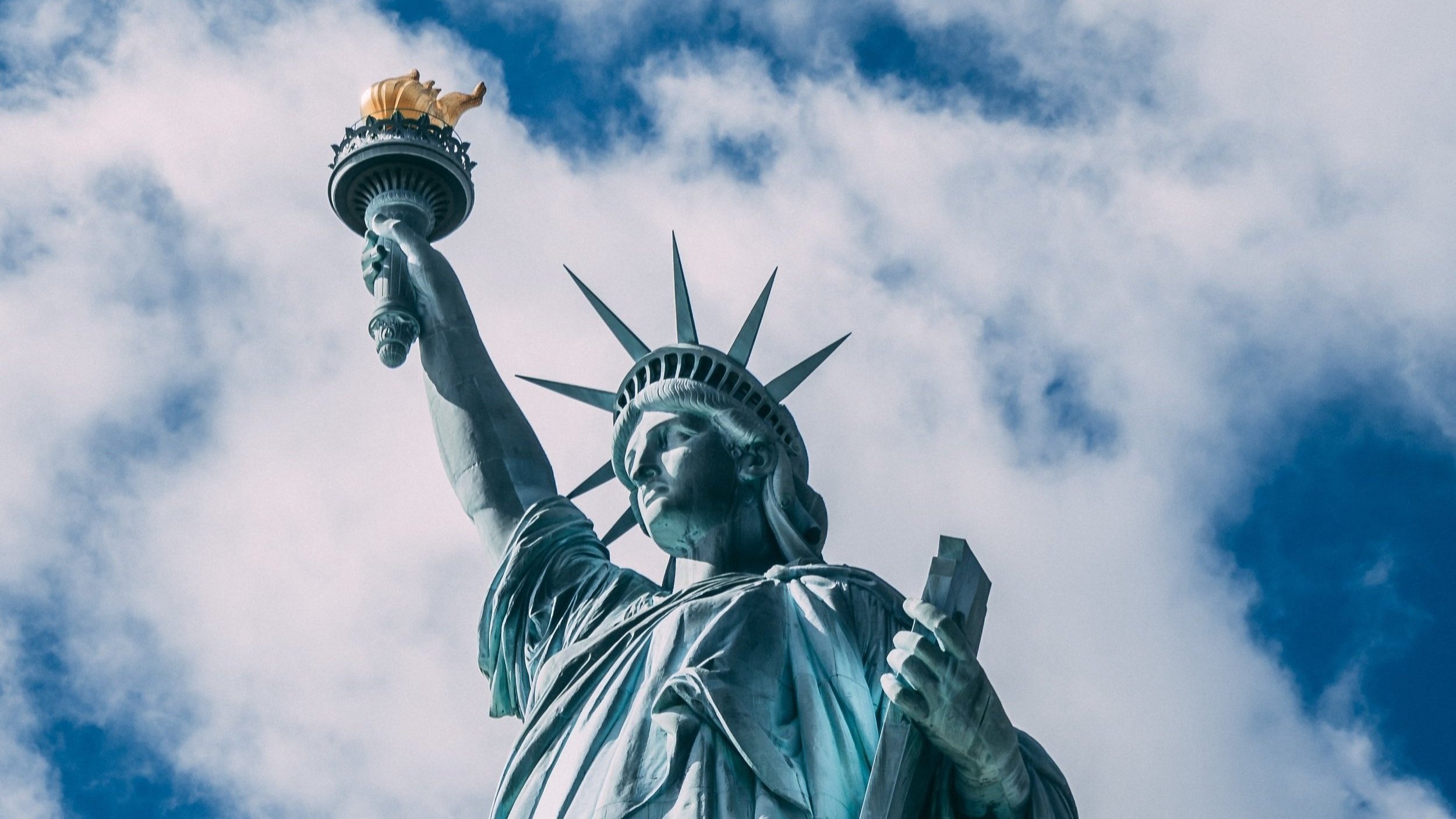Photo by Atahan Guc on Unsplash
Americans believe they are losing their liberties, freedom and rights and will continue to over the next decade.
by EMILY SCHMIDT, CRAIG HELMSTETTER and ALYSON CLARY | June 30, 2022
DOCUMENTATION
DETAILED REPORT
SURVEY TRANSPARENCY DISCLOSURE & METHODS
RELATED
Mood of the Nation:
* What Americans think of Joe Biden
* On the brink of a potential overturn of Roe v. Wade, Americans are divided on abortion
* Reducing government spending among ways Americans think inflation should be fought
Just last week, the U.S. Supreme Court overturned Roe v. Wade, undoing constitutional protections on abortion and leaving the decision up to states. This individual right is one of many others, including the right to own a gun, same-sex marriage, religious freedom and the rights of those with disabilities to be provided with reasonable accommodations in order to work, that are currently enshrined in federal law.
Past Mood of the Nation Polls have found that liberty, freedom and rights are among the main reasons that Americans value their democracy. The most recent survey seeks to further understand these concepts, including whether Americans believe that individual sovereignty has grown or diminished, whether they believe it with expand or contract in coming years, and which specific rights Americans have in mind when they say that rights have expanded or have been restricted.
The McCourtney Institute for Democracy at Penn State’s most recent Mood of the Nation Poll, conducted May 11-19, 2022, finds that a majority of Americans believes they have lost more personal freedoms in the past 10 years than the they have gained, and will continue to lose more than gain in the next decade.
How liberties, freedom and rights will change
When we asked Americans about the future of their individual right to self-determination two-thirds believe they will lose more than they have right now over the next 10 years. This is true regardless of whether that personal sovereignty is framed as “liberties,” “freedom” or “rights.”
About 1 in 10 people said they will gain more liberties, freedom or rights than lose over the next 10 years, while 1 in 5 said there will be no change.
Across most groups, at least 60% indicate that there will be a net loss of liberties, freedom and rights over the next decade. The only exceptions are Generation Z, Black Americans and Latino Americans. On the other hand, three-quarters or more of Baby Boomers (76%), White Americans (75%) and Republicans (77%) indicate that Americans are likely to lose more individual self-determination than they will gain.
The two groups standing with the largest proportions believing that rights will, on net, expand over the next decade: Black Americans at 27% and Generation Z at 23%. No other groups in our analysis exceeded 15%.
“The last ten years have seen expansions of rights in marriage equality, private use of recreational marijuana, an overall reduction in taxes, and an extended series of court and legislative victories for religious freedom. That both liberals and conservatives feel that fundamental rights are at risk illustrates the zero-sum nature of today’s politics. Both side’s belief that their rights will erode is bound to animate politics in the coming years.”
How liberties, freedom and rights have changed
Over half of Americans believe that the nation has lost ground on individual self-determination over the past decade. Answer patterns are very similar whether individual self-determination is framed as “liberties,” “freedom” or “rights.” The only difference in the pattern of answers that approaches a statistically significant difference is that 21% of those asked about “liberties” indicate that there has been a net gain, compared to only 12% of those asked about “freedom.”
Across most groups, at least half believe that they have fewer rights than they did 10 years before. However, there are four groups that fall below that threshold: Generation Z (42%), Black Americans (46%), Latino Americans (37%) and Democrats (38%). The groups with the highest percentage believing that individuals have lost rights to self-determination are the Silent Generation (65%), White Americans (64%) and Republicans (75%).
The groups with the highest proportion perceiving gains in individual sovereignty are Black Americans (26%), Democrats (26%) and members of Generation Z (25%). Twenty percent or fewer of all other groups, including only 7% of Republicans, believe that America has recently gained ground on individual rights and freedoms.
In their own words: What individual liberties, freedom and rights will change in the future and which ones changed in the past
To better understand what liberties, freedom and rights they thought about when answering how they have changed in the past and will in the future, the May Mood of the Nation survey included the following open-ended questions:
“In answering the last two questions, what kinds of [liberties] [freedom] [rights] did you have in mind?”
While the question was contained three different combinations based on a respondent’s answers to a preceding question, common themes emerged from the unstructured responses.
The most common theme to emerge from respondents’ verbatim answers to the open-ended question had to do with “speech.” Nearly one-third of respondents mentioned something related to freedom of speech, using one’s voice openly, censorship or to say an opinion without consequence.
About one-fifth of respondents mentioned abortion or reproductive rights. These answers contained ideas related to a women’s right to choose, women’s health and bodily autonomy.
The third most common responses were focused equally on Civil Rights and property, the economy or jobs. The Civil Rights responses were very direct, naming rights for people of color, racism and police. The economy-related responses focused on owning property, living wherever one wants, minimum wage and job security.
One in 10 respondents mentioned something about guns, citing the right to bear arms or the Second Amendment. Several mentioned increasing government control of guns or Democrats taking away guns.
PARTNER FOR THIS SURVEY
The McCourtney Institute for Democracy at Penn State promotes scholarship and practical innovations that defend and advance democracy in the United States and abroad. Through teaching, research and public outreach, the Institute leverages the resources of Penn State and partners around the world to foster a model of deliberation, policymaking and responsiveness that is passionate, informed and civil.
The Institute’s Mood of the Nation poll offers a unique approach to public opinion polling. It allows Americans to speak in their own words through open-ended questions that focus on emotions like anger and hope, as well as commitment to constitutional principles.

